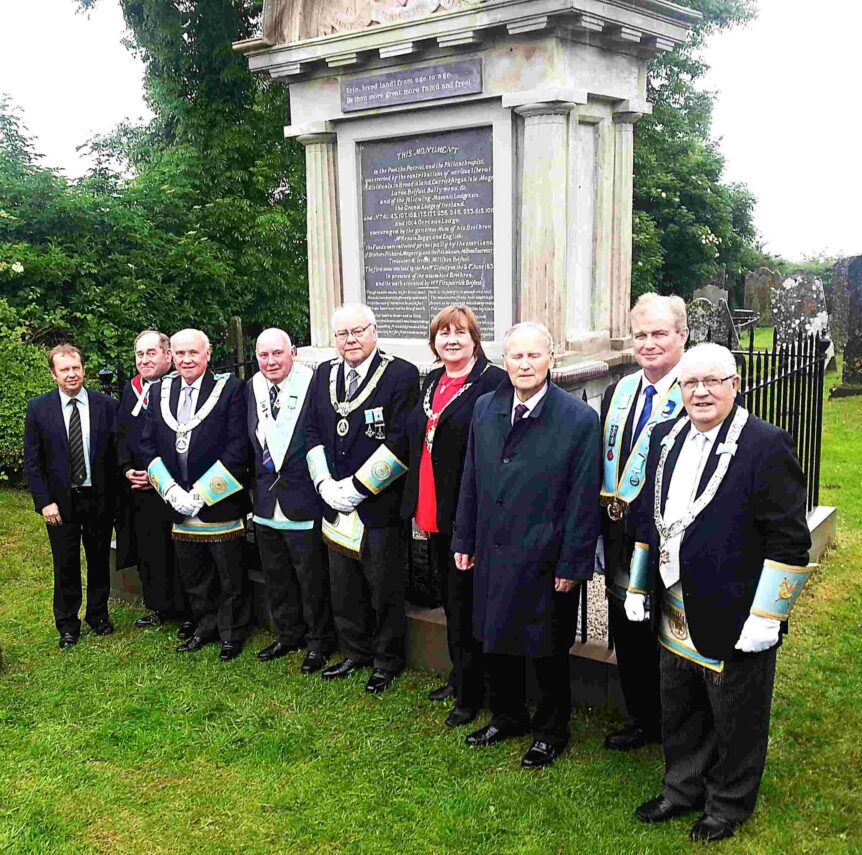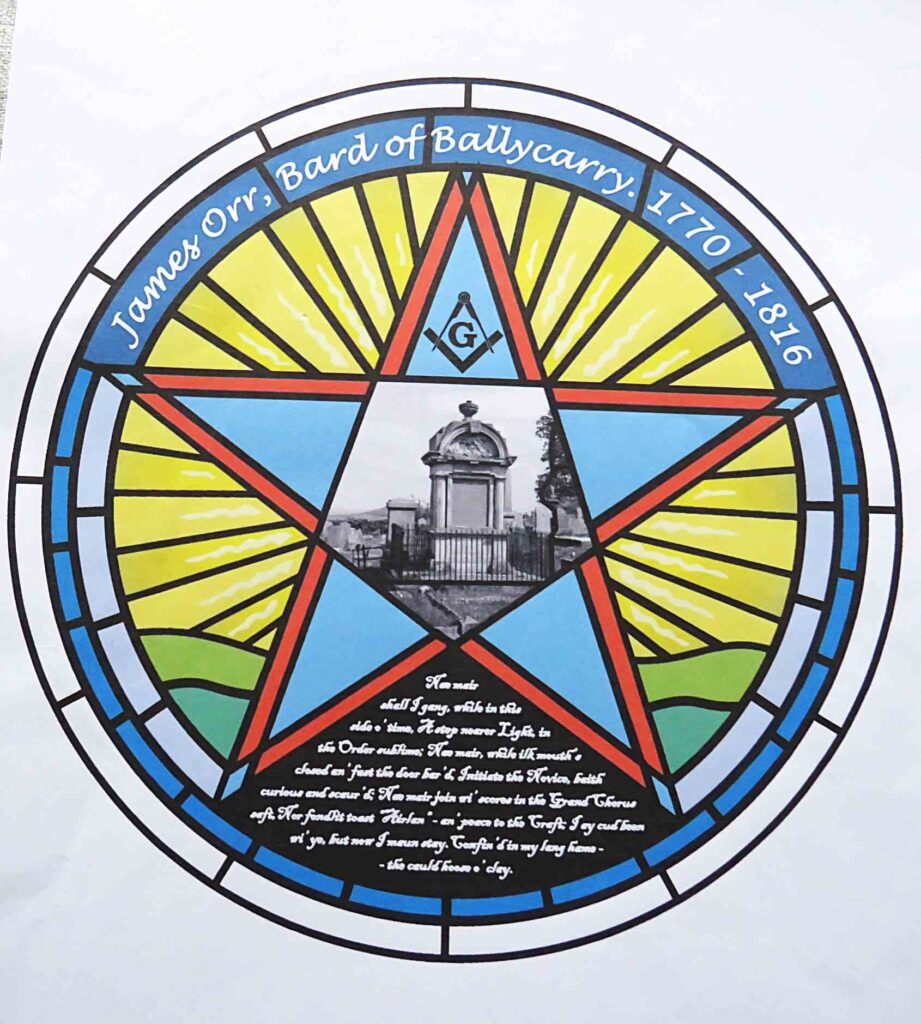
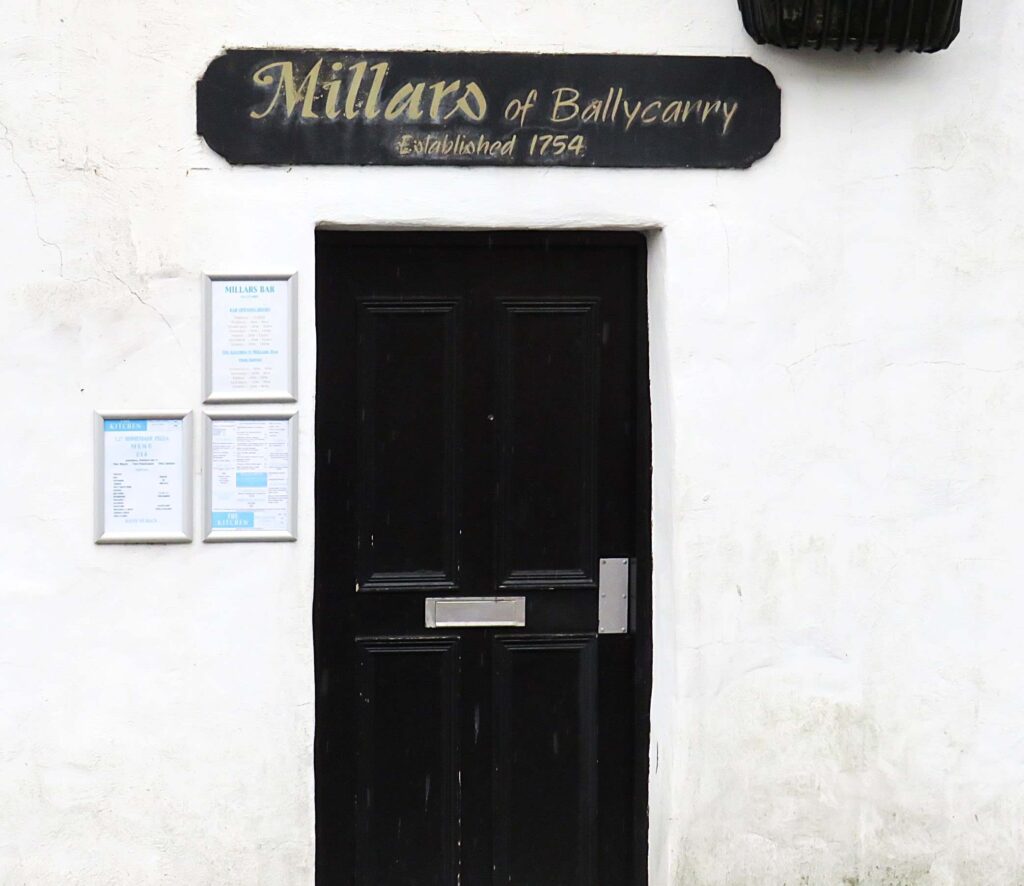
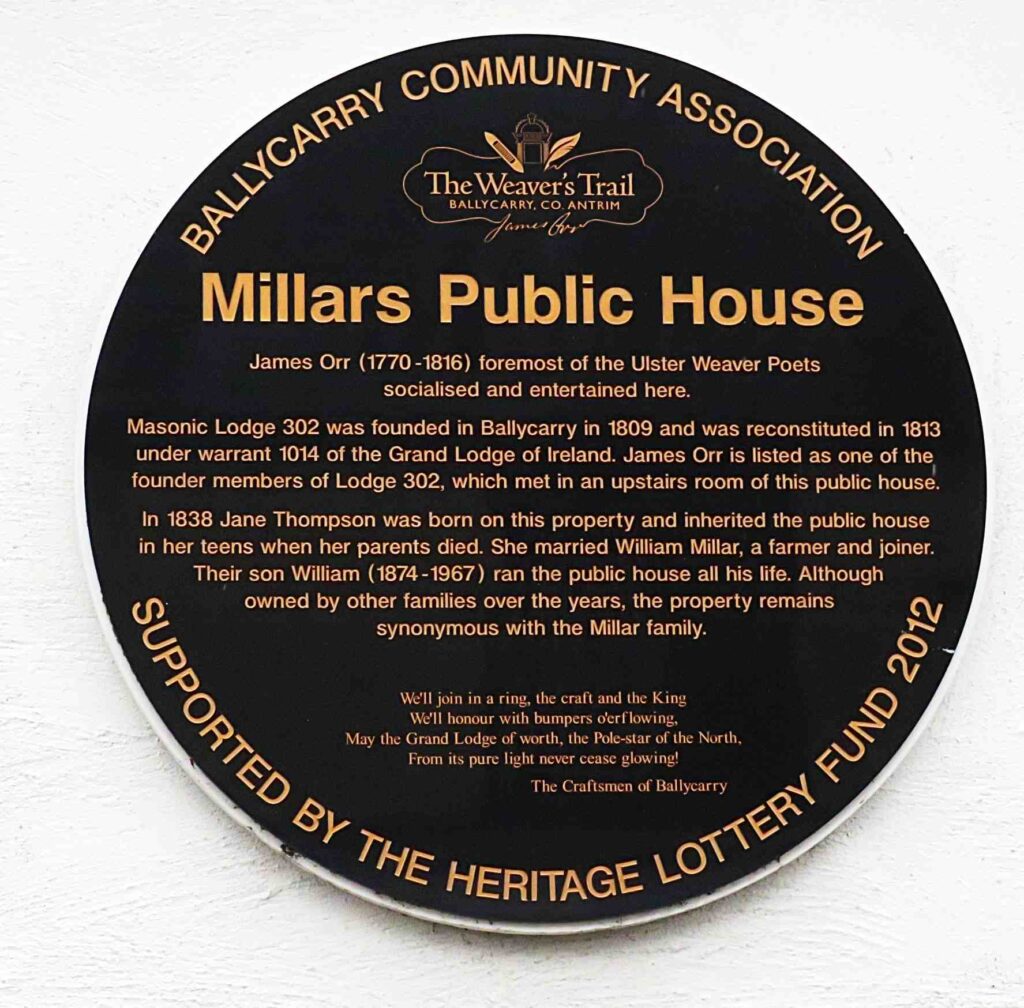
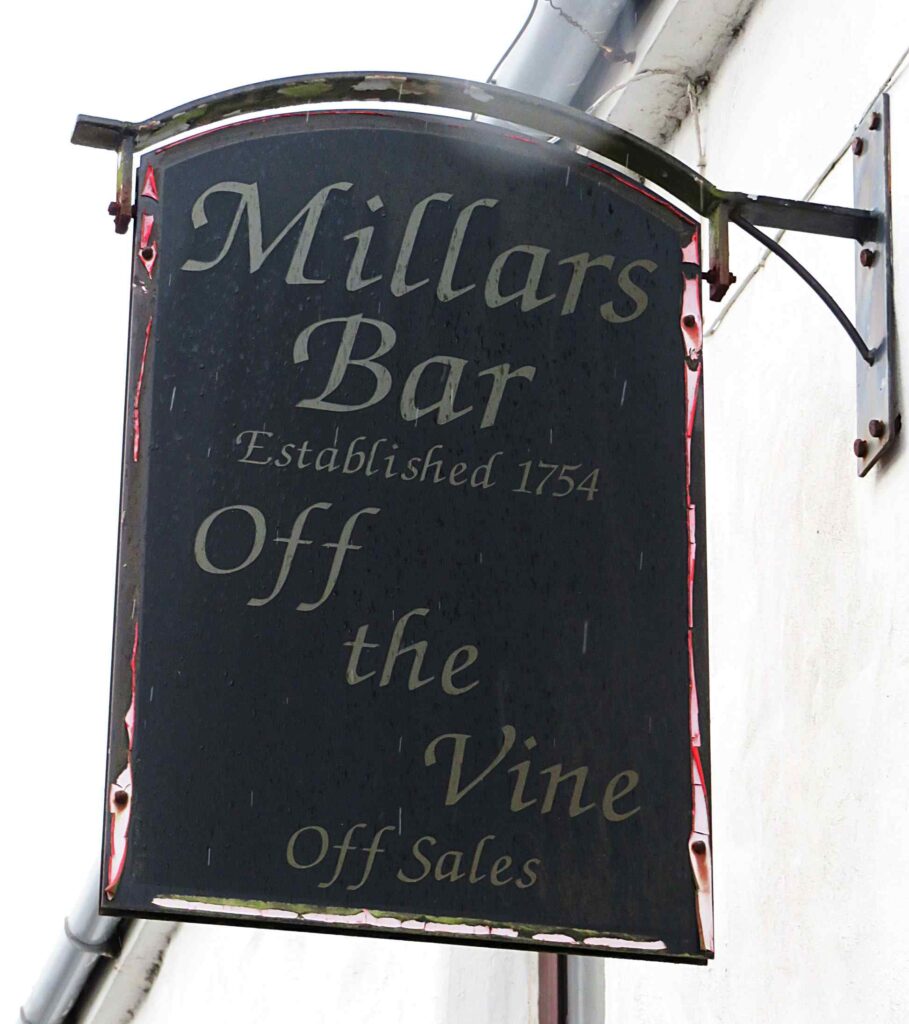
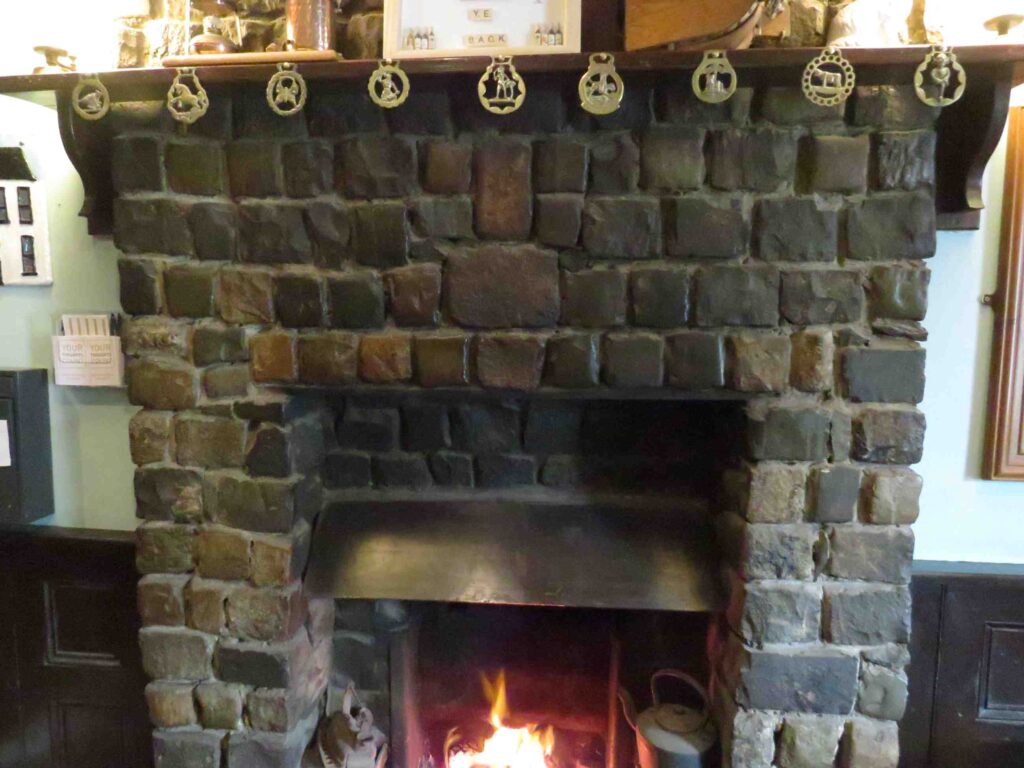
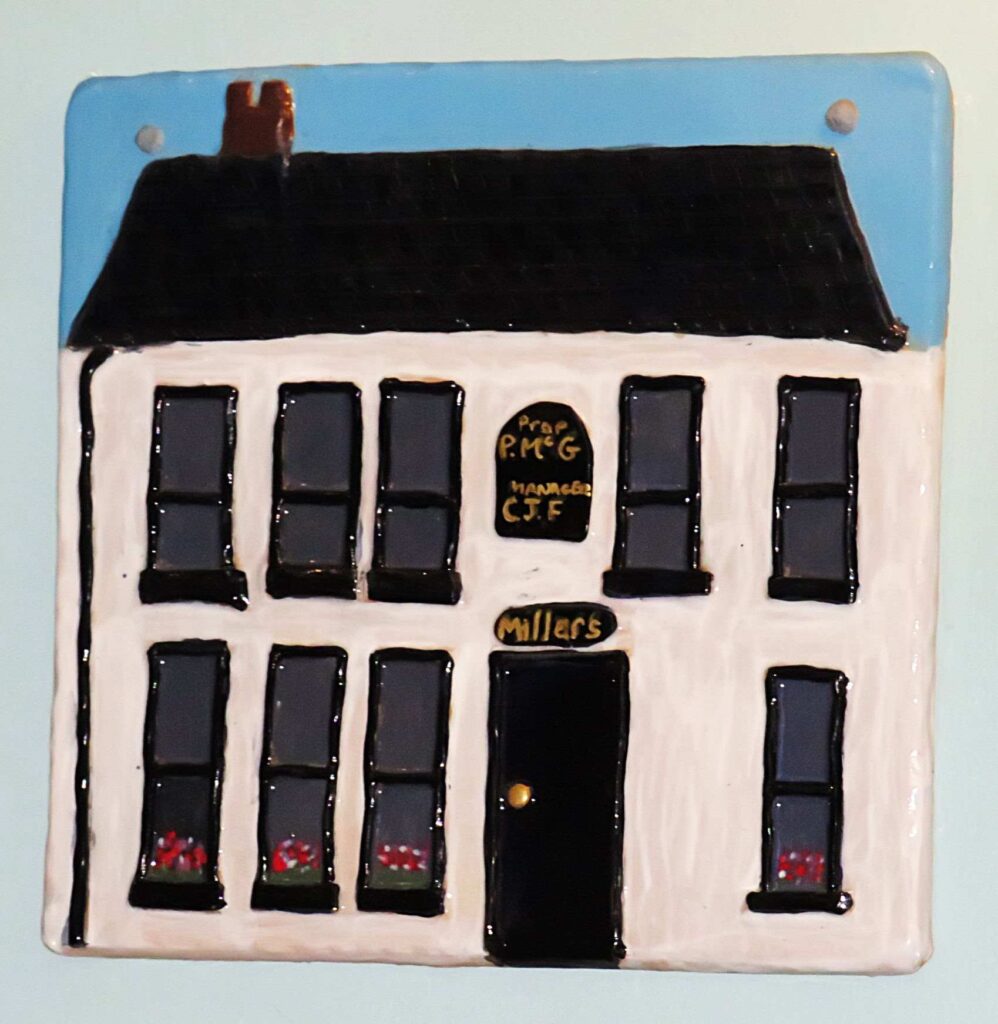
On the 24th April 1816 W. Brother James Orr, Foundation member and Secretary of True Blue Masonic Lodge No 1014, Ballycarry, Passed to The Grand Lodge Above. James Orr was born in the Parish of Broadisland, Ballycarry, Co Antrim in 1770. As an only child James was educated at home by his father, who taught him to read and write and went on to teach him all that he knew about subsistence farming and how to work the weaver’s loom.
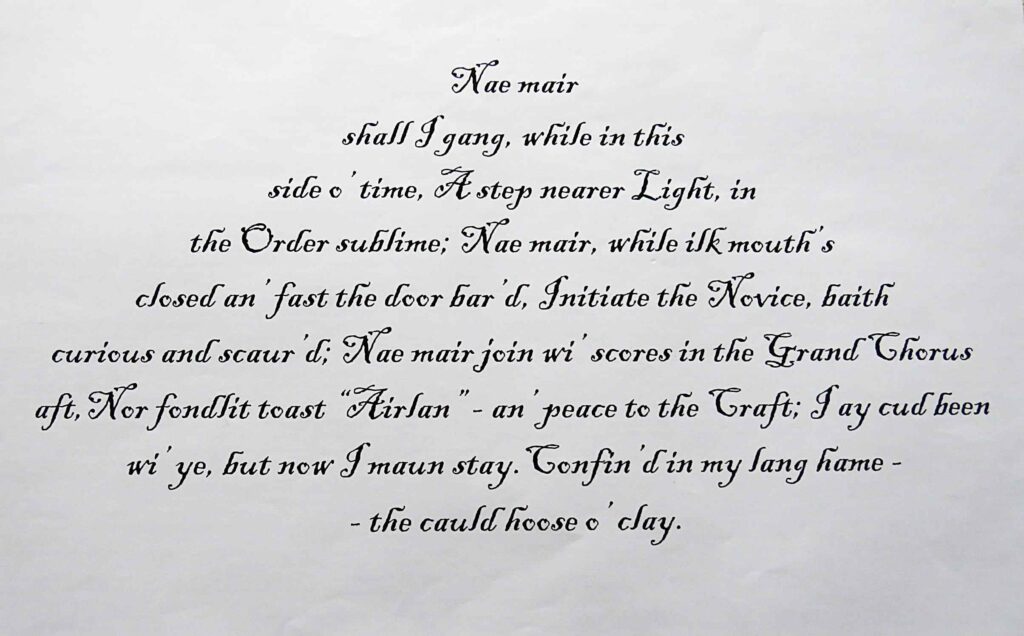

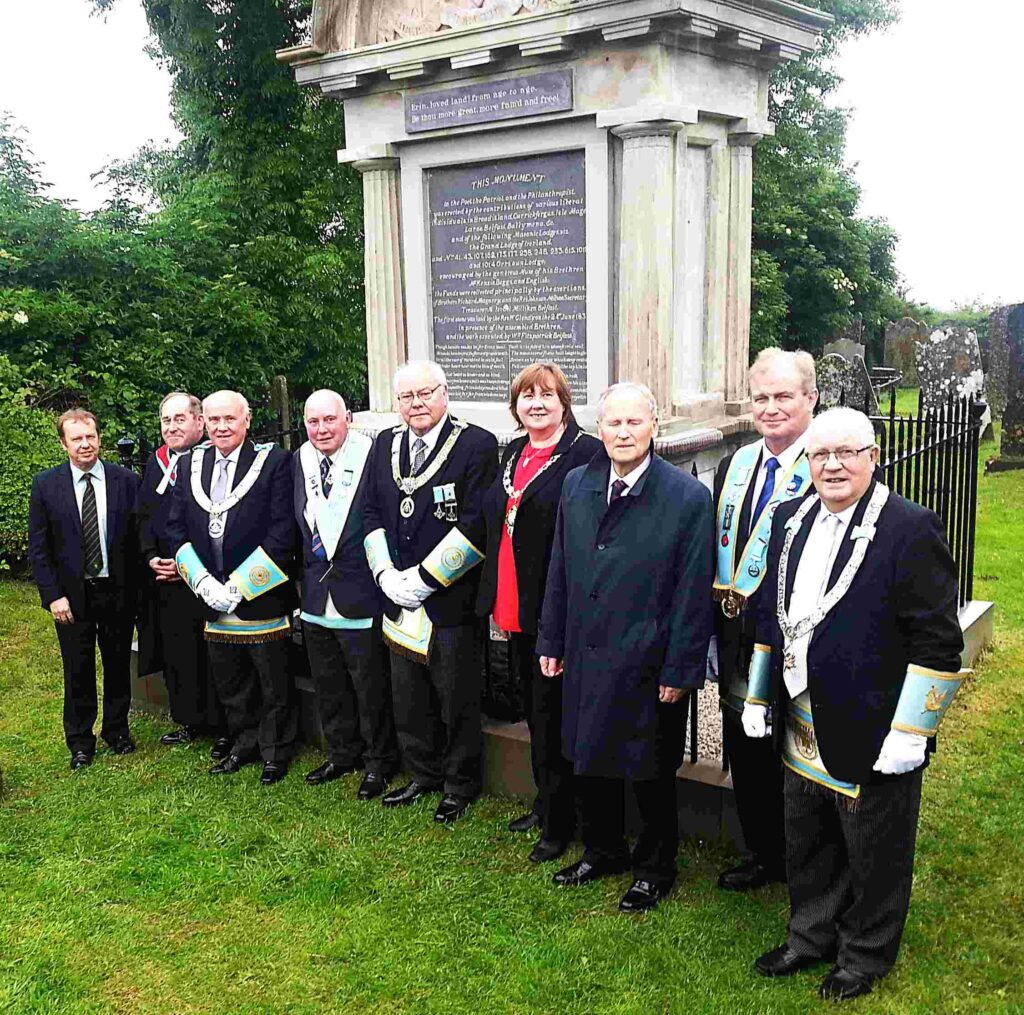
Like many others, he became involved with the United Irishmen and their revolt in 1798. He had written several political poems under a pseudonym, which were published in the Northern Star newspaper in Ireland. He marched off with his friends and neighbours in June 1798 to fight in the battle of Antrim, an event known locally as the “Turn-oot”. James, being a keen social observer wrote several excellent poems at this time including “The Execution” written about the hanging of Willie Nelson, a young United Man who was hung from a branch of a tree growing in front of his mother’s house. His other poem about the Turn-oot was Donegore Hill, a vivid rendition of the preparations made in advance of The Battle of Antrim.
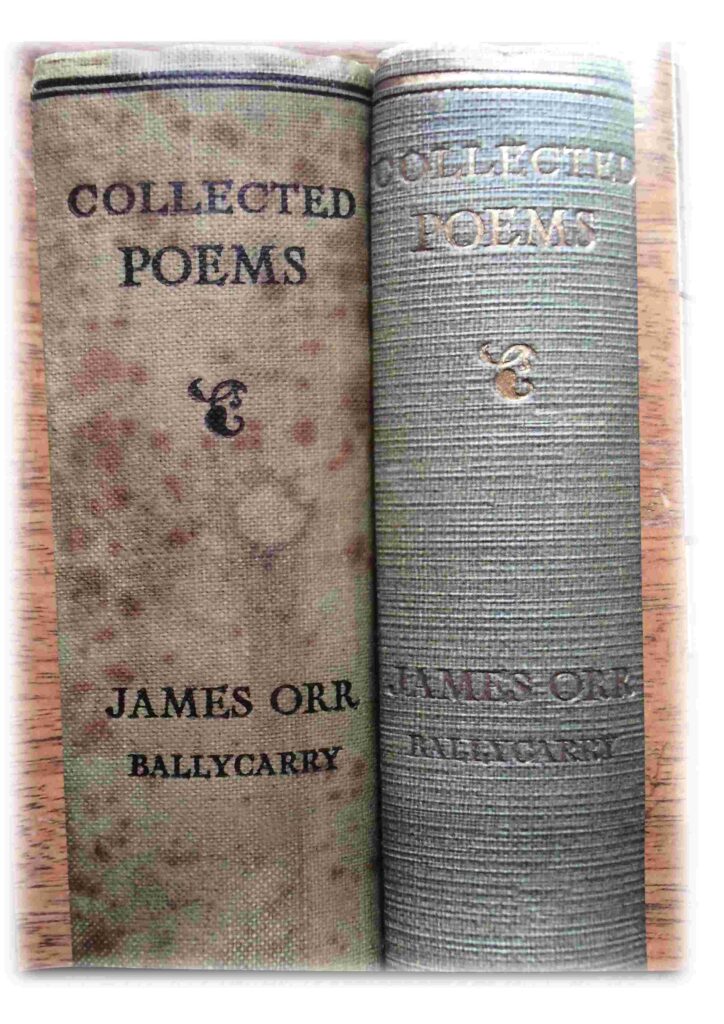
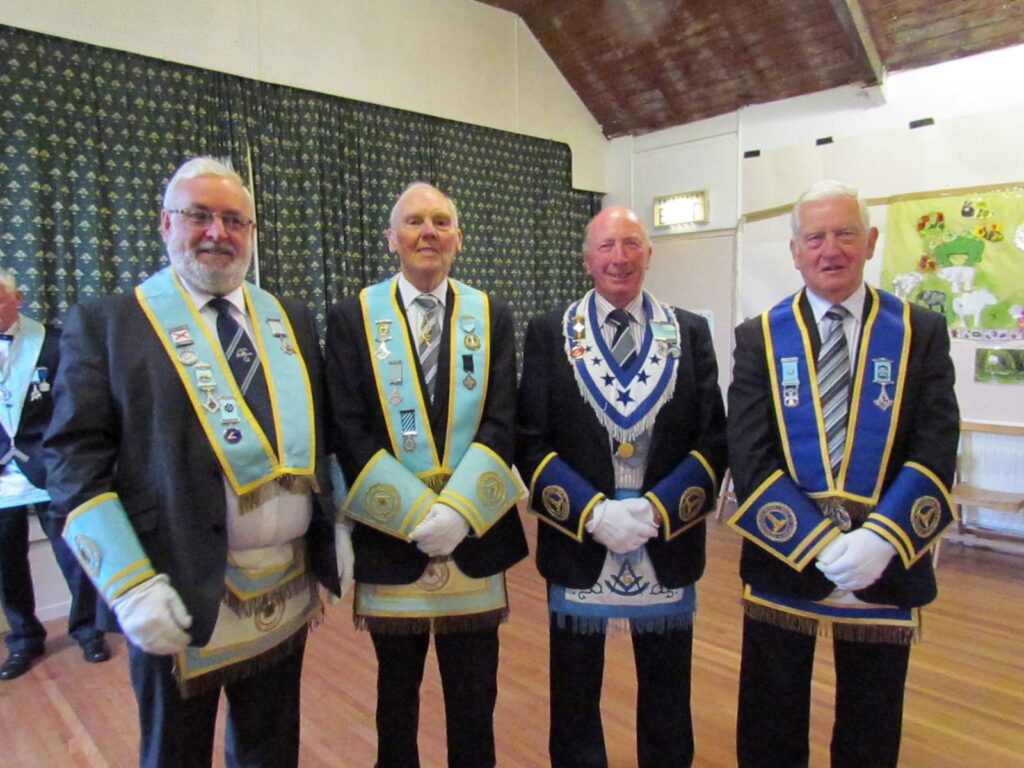
Sadly, the battle did not go well and James had to go on the run, as one of a small party led off into the Antrim Hills around Slemish by the leader of the Revolt – Henry Joy McCracken. These experiences led James to write one of his most powerful poems –“The Wanderer which evokes the stress, fear, uncertainty, and concerns of those survivors from the battle, as they faced the subsequent pressures from the military as they sought to capture, punish or kill those involved in these attacks against the government of the day.
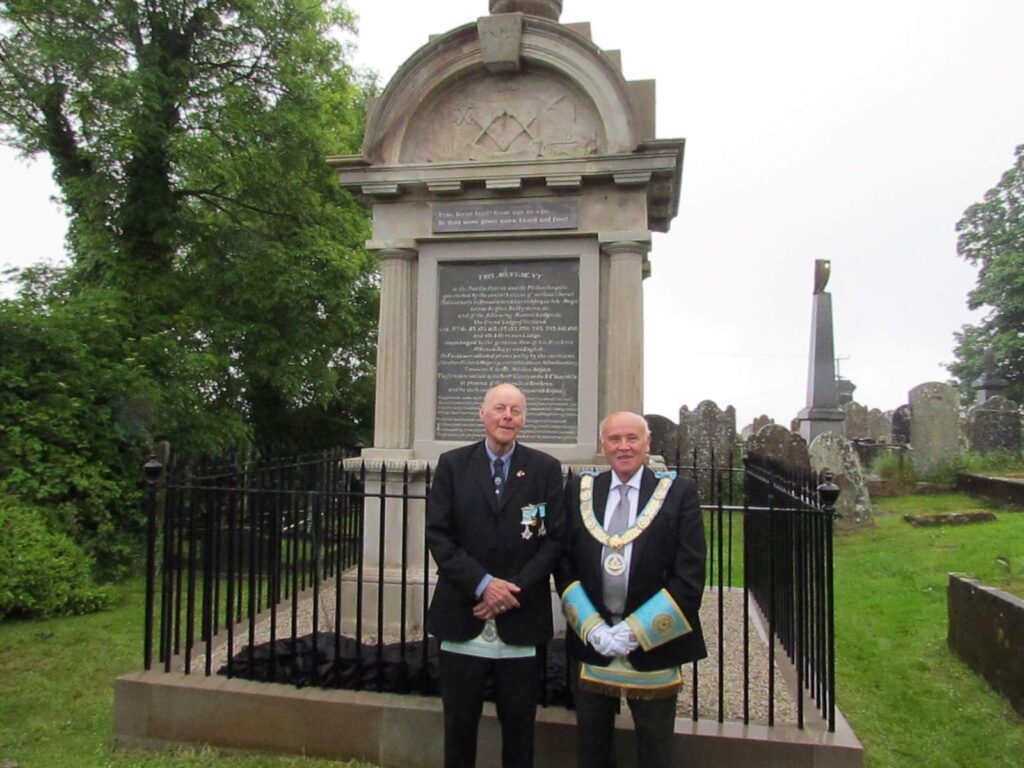
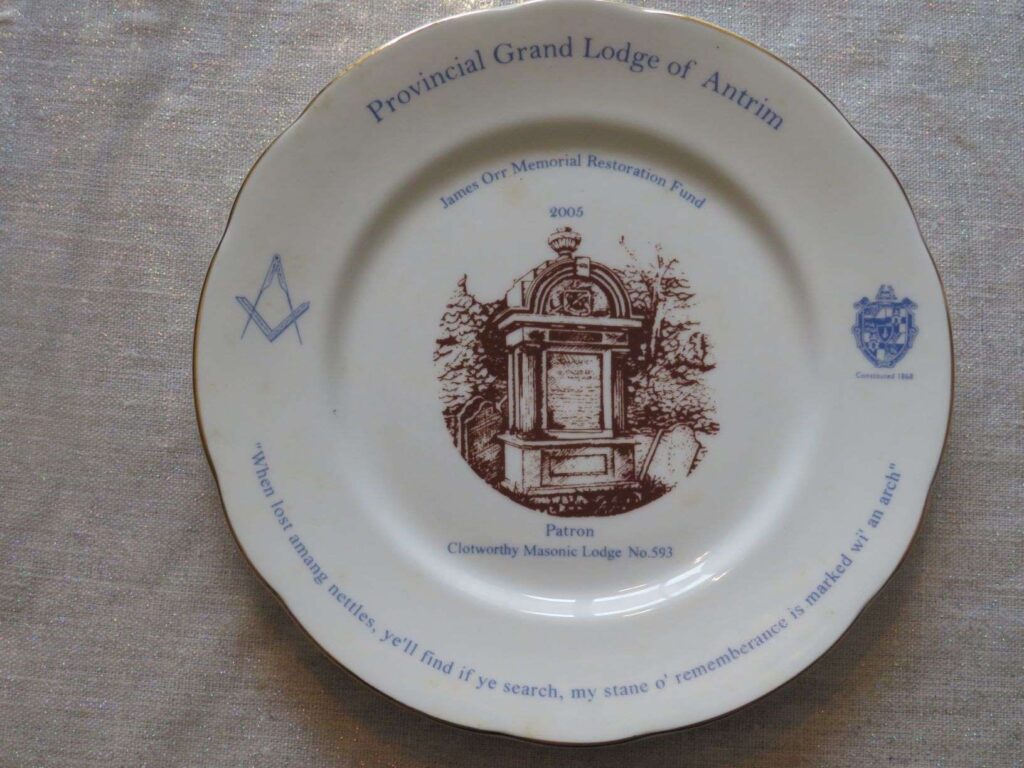
James, had become a Fifty Pounder, a term given to the size of the bounty payable on his capture. As the pursuit through the Antrim Hills continued, the original party broke up, as they all made their individual efforts to escape. James was one of the very lucky ones, making his way to Waterfoot, taken by boat to Scotland, and travelling on to the United States of America. This journey inspired probably the best known of James poems – “ The Irishmen.”
“ The savage loves his native shore,
Though rude the soil and chill the air;
Well then may Erin’s sons adore
Their isle which nature formed so fair!
What flood reflects a shore so sweet,
As Shannon great, or pastoral Bann.
Or Who a friend or foe can meet
So generous as an Irishman.
However, James did not enjoy his time in America, and returned home in 1804, because of the general amnesty issued by the government of the day. James returned to Ballycarry and with the support of his friends and neighbours, he produced his first book of poetry entitled “Poems on Various Subjects.” James settled into his works weaving and farming, making enough financially to survive. He became one of the founders of a new Masonic Lodge in Ballycarry, known as Ballycarry 302. Although the Ballycarry Masons were not aware, that the Warrant they received from Alexander Seton, was not properly issued, the Grand Lodge of Ireland stepped in on the 6th October 1814 and issued a proper and legitimate Warrant to make the Lodge fully compliant with the Laws and Constitutions of the Day. The Lodge met in a room on the upper floor of Millar’s pub, in the centre of Ballycarry and James served as their first Secretary. He was an active Freemason, who wrote several Masonic songs, popular in the local Lodges, amongst which is – “The Craftsmen of Ballycarry”
Kind Visiting Stranger who roam without danger
Through Erin, the land we love dearly.
Since you’ve past the best judge that belongs to our Lodge,
You’re worthy and welcome sincerely.
Your health and your number, shall wake echo’s slumber
Nor shall you sleep long whilst you tarry
For the rafters shall ring, with a song that we sing
On the Craftsmen of sweet Ballycarry.
James was a popular visitor around the many Lodges in South Antrim, and presented many of his poems at the social hour after labour. Sadly, he did not enjoy great health at this time, and after a short illness, was Called Home on the 24th April 1816. Before he died, he wrote another powerful poem – “The Cauld House o Clay.”
Brethren, James was buried in an unmarked grave in Templecorran graveyard in 1816. In subsequent years, the Brethren in the local Lodges, neighbours and others came together and subscribed to erect a fine memorial to this outstanding Man, Poet, and Freemason. Tomorrow will sadly be the 209th anniversary of his death.
Robert Bashford

